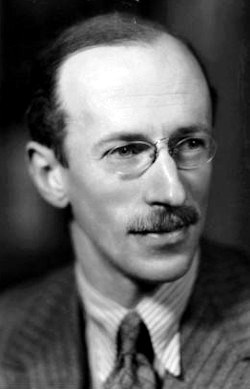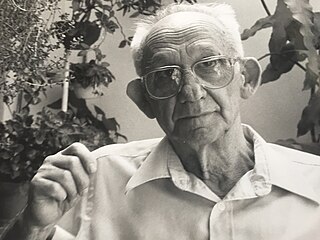
Carl Philipp Gottfriedvon Clausewitz was a Prussian general and military theorist who stressed the "moral" and political aspects of waging war. His most notable work, Vom Kriege, though unfinished at his death, is considered a seminal treatise on military strategy and science.
A nation is a large type of social organization where a collective identity has emerged from a combination of shared features across a given population, such as language, history, ethnicity, culture, territory or society. Some nations are constructed around ethnicity while others are bound by political constitutions.

Vom Kriege is a book on war and military strategy by Prussian general Carl von Clausewitz (1780–1831), written mostly after the Napoleonic wars, between 1816 and 1830, and published posthumously by his wife Marie von Brühl in 1832. It is one of the most important treatises on political-military analysis and strategy ever written, and remains both controversial and influential on strategic thinking.

Totalitarianism is a form of government and a political system that prohibits all opposition parties, outlaws individual and group opposition to the state and its claims, and exercises an extremely high if not complete degree of control and regulation over public and private life. It is regarded as the most extreme and complete form of authoritarianism. In totalitarian states, political power is often held by autocrats, such as dictators or absolute monarchs, who employ all-encompassing campaigns in which propaganda is broadcast by state-controlled mass media in order to control the citizenry.
Right-wing politics is the range of political ideologies that view certain social orders and hierarchies as inevitable, natural, normal, or desirable, typically supporting this position based on natural law, economics, authority, property or tradition. Hierarchy and inequality may be seen as natural results of traditional social differences or competition in market economies.

The End of History and the Last Man is a 1992 book of political philosophy by American political scientist Francis Fukuyama which argues that with the ascendancy of Western liberal democracy—which occurred after the Cold War (1945–1991) and the dissolution of the Soviet Union (1991)—humanity has reached "not just ... the passing of a particular period of post-war history, but the end of history as such: That is, the end-point of mankind's ideological evolution and the universalization of Western liberal democracy as the final form of human government." For the book, which is an expansion of his essay "The End of History?", Fukuyama draws upon the philosophies and ideologies of Georg Wilhelm Friedrich Hegel and Karl Marx, who define human history as a linear progression, from one socioeconomic epoch to another.

Zeev Sternhell was a Polish-born Israeli historian, political scientist, commentator on the Israeli–Palestinian conflict, and writer. He was one of the world's leading theorists of the phenomenon of fascism. Sternhell headed the Department of Political Science at the Hebrew University of Jerusalem and wrote for Haaretz newspaper.

John Joseph Mearsheimer is an American political scientist and international relations scholar who belongs to the realist school of thought. He is the R. Wendell Harrison Distinguished Service Professor at the University of Chicago. He has been described as the most influential realist of his generation.

Yael "Yuli" Tamir is an Israeli academic and former politician who served as a member of the Knesset for the Labor Party between 2003 and 2010, and as Minister of Immigrant Absorption and Education, as well as the deputy speaker of the Knesset and a member of the Finance committee, the Education committee and the Security and Foreign Affairs committee. From 2010 to 2020, Tamir was President of Shenkar College of Engineering and Design. Since 2015 she is an adjunct professor at the Blavatnik School of Government, Oxford. As of October 2020, Tamir is President of Beit Berl College.
Civic nationalism, also known as democratic nationalism and liberal nationalism, is a form of nationalism that adheres to traditional liberal values of freedom, tolerance, equality, individual rights and is not based on ethnocentrism. Civic nationalists often defend the value of national identity by saying that individuals need it as a partial shared aspect of their identity in order to lead meaningful, autonomous lives and that democratic polities need a national identity to function properly.
Military Theory is the study of the theories which define, inform, guide and explain war and warfare. Military Theory analyses both normative behavioral phenomena and explanatory causal aspects to better understand war and how it is fought. It examines war and trends in warfare beyond simply describing events in military history. While military theories may employ the scientific method, theory differs from Military Science. Theory aims to explain the causes for military victory and produce guidance on how war should be waged and won, rather than developing universal, immutable laws which can bound the physical act of warfare or codifying empirical data, such as weapon effects, platform operating ranges, consumption rates and target information, to aid military planning.

Henry Spenser Wilkinson was the first Chichele Professor of Military History at Oxford University. While he was an English writer known primarily for his work on military subjects, he had wide interests. Earlier in his career he was the drama critic for London's Morning Post.
Adi Ophir is an Israeli philosopher.
Yehouda Shenhav is an Israeli sociologist and critical theorist. He is known for his contributions in the fields of bureaucracy, management and capitalism, as well as for his research on ethnicity in Israeli society and its relationship with the Israeli-Palestinian conflict.

Yaron Ezrahi was an Israeli political theorist and philosopher, professor at The Hebrew University of Jerusalem, a senior Fellow at the Israel Democracy Institute in Jerusalem, and a public intellectual. Ezrahi was known for his work on the relations between modern science and the rise of the modern liberal democratic state and the political uses of scientific knowledge and authority. His late work focuses on the deterioration of the Enlightenment version of the partnership between science, technology and democracy, the changing parameters of postmodern imaginaries, and performances of the democratic order. His books, written in English and Hebrew, were translated into German and Chinese.

Sir Basil Henry Liddell Hart, commonly known throughout most of his career as Captain B. H. Liddell Hart, was a British soldier, military historian, and military theorist. He wrote a series of military histories that proved influential among strategists. Arguing that frontal assault was bound to fail at great cost in lives, as proven in World War I, he recommended the "indirect approach" and reliance on fast-moving armoured formations.

Reactionary modernism is a term first coined by Jeffrey Herf in the 1980s to describe the mixture of "great enthusiasm for modern technology with a rejection of the Enlightenment and the values and institutions of liberal democracy" that was characteristic of the German Conservative Revolutionary movement and Nazism. In turn, this ideology of reactionary modernism was closely linked to the original, positive view of the Sonderweg, which saw Germany as the great Central European power neither of the West nor of the East.
The United States factor is a view of modern history that promotes the United States as the contingent reason for the Allied Powers winning both world wars and for preventing any powerful rival political regime from becoming mainstream in the 21st century world.
The following outline is provided as an overview of and topical guide to politics and political science:

Yehoshua Arieli was an Israeli historian and Emeritus Professor of American History at the Hebrew University of Jerusalem.He was born in Karlovy Vary (Carlsbad), Czechoslovakia, and was taken to Ereẓ Israel in 1931. Arieli was perhaps best known for writing Individualism and Nationalism in American Ideology. Between 1976 and 1991 Arieli served as chairman and member of the board of directors of the Historical Society of Israel. In 1993, Arieli was awarded the Israel Prize for his contributions to history.












